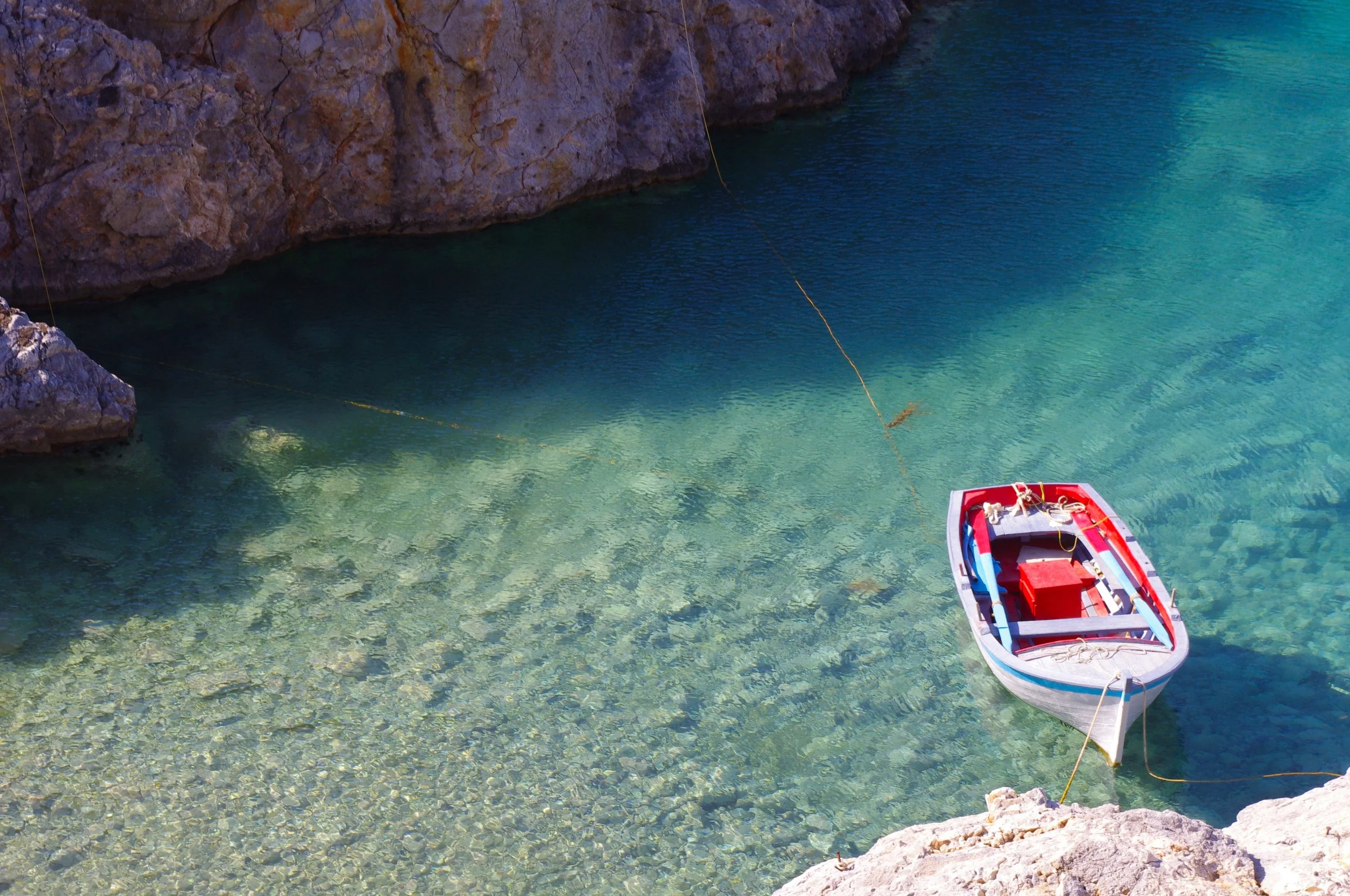Jackie Anne Morrill Tells Us What You Shouldn't Expect in a MFA

Buzac Marius
When a Bird Meets a Fish: Part 1
I am coughing up scales.
Whooping bird of the sea:
Pisces with two tails—wait!
In men’s mouths hide stones
behind tongues, accusatory giblets
They call to me,
mimic siren songs
for my return: sister, is that you?
You sending thyme in shelled envelopes?
I am coming.
When a Bird Meets a Fish: Part 2
They rolled egg from ocean to land.
Flexible bone shadows grasping round edges
until sand swaddled great ivory cocoon.
Derceto babe, the doves flock
settle feathered cities around you
exchange nest gem for oyster
halves unopened.
When a Bird Meets a Fish: Part 3
Skull cracks easy as egg.
His emptied on the riverbed.
The yolk of him bleeding into silt ash.
My hair weeding around his waist, legs
Taut, knotted to a vessel no longer mine.
Out with the tide.
Q & A with Jackie Morrill & editor Joanna C. Valente
JV: Talk to me about your lineation. I notice in your three poems, the lines are all relatively the same length. Is this something you prefer in general? Or is it relevant particularly to this collection?
JM: I never know what my lineation is going to be before I write a poem. I usually break when there’s a break in my head or when I hear the pause out loud. Lately I’ve been experimenting with smaller, shorter poems, which is a little frightening to me because I prefer the longer lines, almost prose-like poems, but it’s nice to try something new.
You completed your MFA at Sarah Lawrence College. How do you think receiving an MFA has changed your writing? What were your expectations of the MFA world? What are they now?
I went into my MFA program expecting to be changed and in meeting with those expectations, I did come out of the program changed. Not only in my writing but the way I read, revise, and even speak with other writers. I hated the craft of writing, and honestly, I still bring myself to analyze and follow a standard of writing craft, but now, I can appreciate it and understand why it is important. I think the program and leaving MA to live in NY for two years was almost too ambitious and I wanted to quit, several times. But I’m proud that I made it through, I’m proud of the writing and learning I did there.
I went into the MFA program imagining it was going to be littered with academics and that there would be more direction, a strict set of guidelines to follow in order to receive the degree. Instead, I was met with unbelievably lax guidelines and the phrase I was met with over and over “This is your degree, do what speaks to you.” I didn’t know what to do with that at first. It took at least a year to really understand that completing a graduate degree, especially in a fine art, isn’t about guidelines and essays and “correction” but rather about the challenges you have for yourself.
What influences your work the most? Other poets, music, fiction?
Other poets influence me in more ways than any other art. I love persona. I love visceral narrative. Ai is my favorite, she is the writer I aspire to be. She’s courageous, angry, and able to empathize with even the lowest of characters. I think I am the number fan of Anne Carson, her imagination, her structure and mythology. Autobiography of Red, after reading it over and over I am still fascinated, I just never knew one person could write like THAT! I am inspired by true life trauma, but the news and why people do what they do. This ranges in a scale of sexual fetishism to infanticide. Bad things happen all the time, and for some reason or other, I feel the need to literarily become part of it.
Who do you write for (other than yourself)?
I hate that question. I’ll tell you who I don’t write for: my family, friends or lover(s).
If you were a fish, what kind of fish would you be?
I love fish. I’m fascinated by all things deep-sea and so when I first read this question I thought, oh, yes I am a deep-sea angler with the tiny light waving pray into its jaws. Then I really like the goblin shark and eels. But I’ve finally come to the conclusion that I would be a jellyfish. Not necessarily an extremely poisonous jellyfish, maybe even one of those completely harmless translucent guys that wash up in masses on the beach. They fight to stay alive under the sun and hope that someone will notice they’re still breathing and kick them into the water.
Editor's Note: This feature appeared on our old site.
Jackie Anne Morrill is a MFA graduate of Sarah Lawrence College. She hosts a monthly reading and writing group for women called the The Round Room Women’s Reading. Her work can be seen in The Ballard Street Poetry Journal, Amethyst Arsenic, elimae, The Legendary, The Boiler Journal, decomP, and Radius: Poetry from the Center to the Edge. She lives in Worcester, Massachusetts with her fiance and cat and will be teaching at Worcester State College in the fall.







